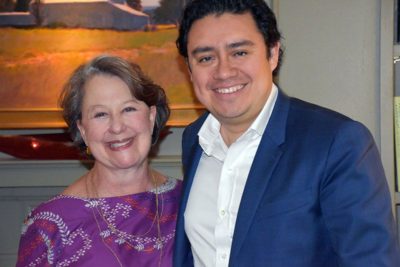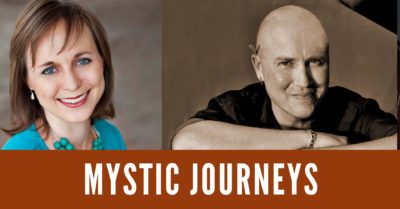SUMMER SERENADE
Thursday, June 10 | 7:30 PM
Victoria Fine Arts Center
1002 Sam Houston Drive
Please hold applause until after the Mozart Divertimento.
SAMUEL BARBER (1910 – 1981)
Adagio for Strings
WOLFGANG AMADEUS MOZART (1756 – 1791)
Divertimento in D major, K.136/125a
- Allegro
- Andante
- Presto
__________________________
ANTONÍN DVOŘÁK (1841 – 1904)
Serenade for Strings in E Major
- Moderato
- Tempo di Valse
- Scherzo: Vivace
- Larghetto
- Finale: Allegro vivace
Victoria Bach Festival String Orchestra
Alejandro Hernandez-Valdez, conductor
VIOLIN I
Stephen Redfield, concertmaster
Jackson Guillen
Nicholas Tavani
Joan Carlson
Bruce Colson
Susan Doering
VIOLIN II
Corinne Stillwell, principal
Rachel Shapiro
Juan Jaramillo
Gesa Kordes
Boel Gidholm
VIOLA
Caitlin Lynch, principal
Suzanna Giordano-Gignac
Melissa Brewer
Désirée Elsevier
CELLO
Gregory Sauer, principal
Christopher Haritatos
Jia Kim
Dieter Wulfhorst
DOUBLE BASS
Melanie Punter, principal
Andrew Potter

This evening’s concert is offered in loving memory of Kay Walker.

Sponsors
Ron Walker and family
Carol & Darrell Rangnow
Melanie Klotzman
This concert is generously supported by our concert sponsors and by donors to the Victoria Bach Festival’s Annual Fund. Many thanks to our generous supporters!
This has been a challenging year, filled with loss. Loss of security, loss of civility, loss of life. But think of winter. Each winter is a time of loss. Loss of light, loss of warmth, loss of life. Yet in that darkest time, the seeds of rebirth are awaiting their time. Now is their time.
To recognize our metaphorical winter of very real losses this year, losses we have all suffered, VBF dedicates this performance of Samuel Barber’s poignant “Adagio” to the memory of Kay Walker and all the loved ones who left us. Composed in 1938, only three years after he won the famed Prix de Rome, this lovely work demonstrates the evolution of a child prodigy into a mature artist.
This piece, a complex fusion of serenity and tragedy, enfolds us in what conductor Stephen Errante calls a “numbed, throbbing silence,” before reprising the lush opening theme. The Adagio’s deeply empathetic power has expressed sorrows at such events as the funeral of Franklin Roosevelt and the ceremony commemorating the fall of the World Trade Center towers on 9/11. Tonight, it marks our time spent mourning the losses experienced during the pandemic.
As we emerge from this period, we remember the joys we experienced with our loved ones and anticipate the joys yet to come. Composed in 1772, Mozart’s bright Divertimento served as a compositional palette cleanser while he prepared his virtually forgotten opera Lucio Silla for its premiere in Milan later that same year. The child prodigy was sixteen at the time.
This diversion perfectly resonates with the Classic era ethos through a springtide charm offensive. In this era, composers used certain stylistic gestures, now called “topics,” to express different effects. The first movement illustrates the “brilliant” topic with bright tempo and racing scales, the perfect effect for the lively hope of rebirth. The second movement is the romantic Empfindsamer, or “sensitive” topic, featuring cantabile melodies bathed in delicate harmonic sensibilities. The final presto shows the energy and elegance of the galant topic with a touch of brilliance.
To end this voyage of reawakening, Dvořák’s Serenade is the perfect vehicle of delight. It travels through images of urban and rural society, dancing all the while. Opening with some hints of past darkness, the moderato expresses the composer’s allegiance to his cultural homeland, Bohemia, now known as the Czech Republic. The waltz, star turn of social ballrooms, spins and swirls and charms, with the occasional hint of rustic boldness. The chuckling scherzo and finale are both more overtly Czech with the pesante feel of pastoral dances—hearty tunes with strong down-to-earth rhythms. Yet even the larghetto seems to have that passionate yearning and puckish humor often found in East European music.
This piece was written in 1875, after the composer, then in his early thirties, had won a grant from a panel whose judges included the great Johannes Brahms. Perhaps its joy comes having that rare composer’s treat, a stable income. Whatever the reason, the heart-filled richness of this serenade perfectly points the way past a time of stress, toward rest and reflection, and on to renewing the everyday pleasures of life.
–Dr. Yvonne Kendall, © 2021
Dedications, Diversions, Delights
This has been a challenging year, filled with loss. Loss of security, loss of civility, loss of life. But think of winter. Each winter is a time of loss. Loss of light, loss of warmth, loss of life. Yet in that darkest time, the seeds of rebirth are awaiting their time. Now is their time.
To recognize our metaphorical winter of very real losses this year, losses we have all suffered, VBF dedicates this performance of Samuel Barber’s poignant “Adagio” to the memory of Kay Walker and all the loved ones who left us. Composed in 1938, only three years after he won the famed Prix de Rome, this lovely work demonstrates the evolution of a child prodigy into a mature artist.
This piece, a complex fusion of serenity and tragedy, enfolds us in what conductor Stephen Errante calls a “numbed, throbbing silence,” before reprising the lush opening theme. The Adagio’s deeply empathetic power has expressed sorrows at such events as the funeral of Franklin Roosevelt and the ceremony commemorating the fall of the World Trade Center towers on 9/11. Tonight, it marks our time spent mourning the losses experienced during the pandemic.
As we emerge from this period, we remember the joys we experienced with our loved ones and anticipate the joys yet to come. Composed in 1772, Mozart’s bright Divertimento served as a compositional palette cleanser while he prepared his virtually forgotten opera Lucio Silla for its premiere in Milan later that same year. The child prodigy was sixteen at the time.
This diversion perfectly resonates with the Classic era ethos through a springtide charm offensive. In this era, composers used certain stylistic gestures, now called “topics,” to express different effects. The first movement illustrates the “brilliant” topic with bright tempo and racing scales, the perfect effect for the lively hope of rebirth. The second movement is the romantic Empfindsamer, or “sensitive” topic, featuring cantabile melodies bathed in delicate harmonic sensibilities. The final presto shows the energy and elegance of the galant topic with a touch of brilliance.
To end this voyage of reawakening, Dvořák’s Serenade is the perfect vehicle of delight. It travels through images of urban and rural society, dancing all the while. Opening with some hints of past darkness, the moderato expresses the composer’s allegiance to his cultural homeland, Bohemia, now known as the Czech Republic. The waltz, star turn of social ballrooms, spins and swirls and charms, with the occasional hint of rustic boldness. The chuckling scherzo and finale are both more overtly Czech with the pesante feel of pastoral dances—hearty tunes with strong down-to-earth rhythms. Yet even the larghetto seems to have that passionate yearning and puckish humor often found in East European music.
This piece was written in 1875 after the composer, then in his early thirties, had won a grant from a panel whose judges included the great Johannes Brahms. Perhaps its joy comes having that rare composer’s treat: a stable income. Whatever the reason, the richness of this serenade fills the heart and perfectly points the way past a time of stress, toward rest and reflection, and on to renewing the everyday pleasures of life.
–Dr. Yvonne Kendall, © 2021

New York, New York
Esteemed conductor and pianist Dr. Alejandro Hernandez-Valdez was named Artistic Director of Musica Viva NY and Director of Music of the historic Unitarian Church of All Souls in Manhattan in 2015. He is also Co-Founder of the New Orchestra of Washington and Artistic Director of the Victoria Bach Festival. He has earned accolades from The Washington Post as a conductor “with the incisive clarity of someone born to the idiom,” as well as praise from The New York Times for leading “a stirring performance” of Brahms’ Ein Deutsches Requiem. His guest conducting engagements include appearances at The Kennedy Center in Washington, D.C., Lincoln Center in New York City, and the Degollado Theatre in Guadalajara, Mexico, where he led the Jalisco Philharmonic. As a pianist, Hernandez-Valdez performed for the 2013 Britten 100 festival in New York, organized by the Britten-Pears Foundation to honor the 100th anniversary of the titular composer’s birth. Read full bio
See our full 2021 artist list for additional performer biographical information.



